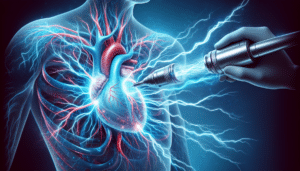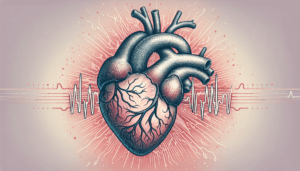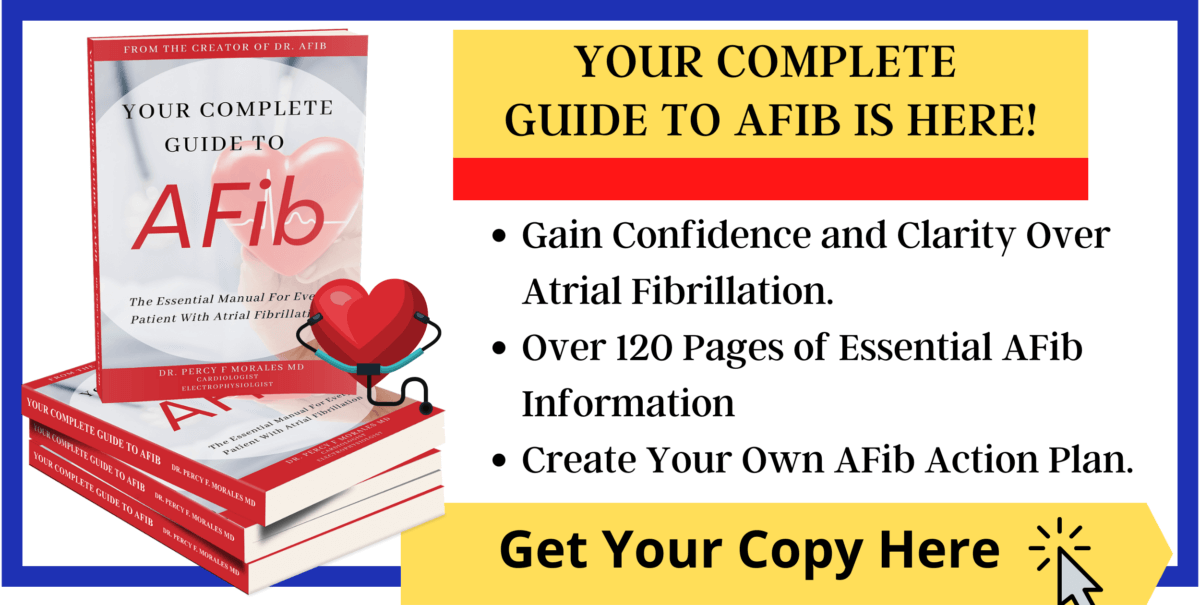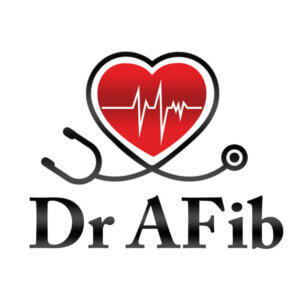Imagine improving atrial fibrillation (AFib) effectively with the power of a healthy diet and lifestyle change. Exciting, isn’t it? AFib, a common heart rhythm disorder, increases the risk of stroke and heart failure, but the good news is that you can take control of your health by making informed choices about your diet and lifestyle. In this blog post, I’ll guide you through understanding AFib, its risk factors, and the pivotal role of diet in managing this condition. Moreover, I’ll delve into specific foods to include or avoid, as well as lifestyle changes that can support your AFib diet and overall heart health.
Short Summary
-
Understanding Atrial Fibrillation (AFib) requires tailored treatment plans, dietary adjustments and lifestyle changes.
-
A heart-healthy diet rich in fruits, vegetables, legumes and whole grains can play a significant role in managing AFib.
-
Regular physical activity, stress reduction techniques and improved sleep hygiene should be implemented for better overall health and improved symptoms.
-
Healthy diets can improve the success rate of traditional treatment for atrial fibrillation to improve long term success.
Understanding Atrial Fibrillation (AFib)
Atrial fibrillation (AFib) is a common heart rhythm disorder that increases the risk of stroke and heart failure. The upper chambers of the heart, known as atria, experience irregular and chaotic contractions, leading to an irregular heartbeat. Common AFib symptoms include:
-
Stroke
-
Heart failure
-
Blood clots
-
Fatigue
-
Dizziness
-
Chest pain
-
Shortness of breath
It is important to seek medical attention and follow a comprehensive AFib treatment plan to manage AFib and reduce the risk of complications.
But fortunately, a heart healthy diet is essential for improving AFib symptoms. Working with healthcare professionals, such as registered dietitians and cardiovascular specialists, can help you create a personalized plan to optimize your dietary regimen for AFib and promote prevention of AFib episodes through evidence-based guidance.
Combining dietary adjustments, limitations on caffeine and alcohol consumption, physical activity, improved sleep hygiene, and stress management will also improve benefit.
Key Risk Factors for AFib
Certain risk factors contribute to the development of AFib, such as:
-
Age: as age increases, the risk of developing AFib also rises
-
Obesity: many patients with AFib are obese, and weight reduction can assist in controlling the condition
-
Pre-existing medical conditions: certain medical conditions, such as high blood pressure and heart disease, can increase the risk of developing AFib
By addressing these risk factors through diet and lifestyle changes, you can significantly reduce the risk of atrial fibrillation and improve your overall heart health. Adopting a heart-healthy diet which focuses on plant-based foods, whole grains, and healthy fats, can be instrumental in managing AFib and reducing its risk factors.
The Benefits of Weight Loss For AFib
The LEGACY trial for atrial fibrillation (AF) was a groundbreaking study that examined the impact of weight loss on managing AF symptoms and reducing cardiovascular risk. Researchers followed participants with AF who were overweight or obese and monitored the effects of sustained weight loss through a structured program. The results demonstrated that significant weight reduction not only improved overall cardiovascular health but also led to a notable reduction in AF episodes and better management of the condition. These findings highlight the importance of weight management as an adjunct to standard AF treatments, emphasizing the potential benefits of weight loss in reducing AF burden and improving the quality of life for AF patients. Healthcare providers may consider weight loss interventions as part of a comprehensive treatment plan to enhance AF outcomes and patient well-being.
The Role of Diet in Managing AFib
Diet plays a crucial role in managing AFib by reducing the risk factors that cause the condition and, in certain cases, lessening its symptoms. A heart-healthy diet emphasizes plant-based foods, whole grains, and extra virgin olive oil, which have been shown to benefit overall heart health and AFib management.
In the following subsections, we’ll explore the benefits of plant-based diets, whole grains, and extra virgin olive oil in greater detail.
A healthy diet, combined with other lifestyle changes such as regular exercise, stress management, and improved sleep quality, can make a significant difference in managing AFib. The goal is to create a personalized approach that is both attainable and sustainable, ensuring the best possible outcomes for those living with AFib.
Plant-Based Diets and Heart Health
Plant-based diets provide all the essential nutrients for optimal health and are related to decreased inflammation, a lower risk of chronic illnesses such as cardiovascular disease and type 2 diabetes, and enhanced renal function. Incorporating fruits, vegetables, legumes, fish, nuts, and olive oil, which are key components of popular diets such as the Mediterranean diet, is recommended for a diet related to AFib.
A plant-based diet with an abundance of fruits, vegetables, and unsaturated fats may promote overall heart health, decrease cholesterol levels, and diminish the likelihood of a heart attack. By making the transition to a plant-based diet, you’re taking a proactive step towards better managing your AFib and improving your heart health.
Importance of Whole Grains
Whole grains are a vital component of a heart-healthy diet, as they are abundant in fiber, vitamins, minerals, and antioxidants. Consuming whole grains has been associated with improved cardiovascular health, better glycemic control, and weight management.
Examples of whole grains include:
-
Brown rice
-
Oats
-
Quinoa
-
Barley
By including whole grains in your diet, you’re not only improving your heart health, but also helping to regulate your blood sugar levels and manage your weight, factors that contribute to a reduced risk of developing AFib.
Extra Virgin Olive Oil and Its Benefits
Extra virgin olive oil is another essential component of a heart-healthy diet, offering numerous benefits for cardiac health and AFib prevention. With its anti-inflammatory and antioxidant properties, extra virgin olive oil may assist in decreasing the likelihood of cardiovascular disease.
Additionally, the PREDIMED trial found that incorporating extra virgin olive oil into one’s diet resulted in a 38% reduction in the risk of atrial fibrillation. By incorporating extra virgin olive oil into your meals, you’re not only enhancing the flavor of your dishes, but also taking advantage of its numerous health benefits. Some of the health benefits of extra virgin olive oil include:
-
Reducing inflammation
-
Combating oxidative stress
-
Supporting heart health
-
Lowering blood pressure
-
Improving cholesterol levels
With its ability to reduce inflammation and combat oxidative stress, extra virgin olive oil is a valuable addition to any heart-healthy and AFib-friendly diet.
Learn More About The Take Control Over AFib Program Here
Foods to Include in an AFib Diet
Now that we’ve discussed the benefits of plant-based diets, whole grains, and extra virgin olive oil, let’s dive into the specific foods to include in an Afib diet. Foods that are high in fiber, lean proteins, and contain antioxidants are recommended for individuals with AFib. In the following subsections, we’ll detail the benefits of high-fiber foods, lean proteins, and antioxidant-rich foods.
Creating a well-rounded AFib diet involves incorporating a variety of heart-healthy foods while avoiding or limiting foods that may exacerbate AFib symptoms. By focusing on the right food choices and maintaining a balanced diet, you’re actively working towards better AFib management and improved overall heart health.
High-Fiber Foods
High-fiber foods play a crucial role in heart health and Afib management, as they can help lower cholesterol levels and support a healthy digestive system. Examples of high-fiber foods include:
-
Chickpeas
-
Lentils
-
Split peas
-
Oats
-
Apples
-
Pears
-
Almonds
-
Chia seeds
-
Brussels sprouts
-
Avocado
-
Blackberries
-
Kidney beans
Including these high-fiber foods in your daily meals can provide numerous health benefits, such as improved heart health, blood sugar regulation, and weight management. By prioritizing high-fiber foods in your AFib diet, you’re taking a proactive step towards better managing your condition and supporting your overall health.
Lean Proteins
Lean proteins are essential for a heart-healthy diet, as they are low in saturated fat and cholesterol while being high in essential nutrients such as iron, zinc, and B vitamins. Some of the most advantageous lean proteins include:
-
White-fleshed fish
-
Skinless white meat poultry
-
Beans, peas, lentils
-
Plain Greek yogurt
-
Lean beef
-
Eggs
Incorporating lean proteins into your AFib diet can help support heart health, promote weight management, and provide essential nutrients necessary for overall well-being. By choosing lean proteins over less healthy options, you’re actively working towards better AFib management and improved heart health.
Antioxidant-Rich Foods
Antioxidant-rich foods provide numerous benefits for overall heart health and AFib prevention, as they help combat free radicals that can damage cells and contribute to the development of chronic diseases. Some examples of antioxidant-rich foods include:
-
Blueberries
-
Spices and herbs
-
Fruits and berries
-
Vegetables
-
Nuts
-
Seeds
By incorporating antioxidant-rich foods into your AFib diet, you’re not only enjoying delicious and nutrient-dense meals, but also supporting your heart health and reducing the risk of developing AFib. A diet rich in antioxidants is a smart choice for anyone looking to improve their overall well-being and manage their AFib condition more effectively.
Learn More About The Take Control Over AFib Program Here
Foods to Avoid for AFib Patients
While focusing on heart-healthy foods is essential for AFib management, it’s equally important to avoid or limit certain foods that may exacerbate AFib symptoms or contribute to the development of heart-related issues. AFib patients should be mindful of avoiding sugary foods and drinks, processed foods, and alcohol and caffeine.
In the following subsections, we’ll detail the reasons why these food groups should be avoided or limited for individuals with AFib. By being aware of the foods to avoid and making informed choices about your diet, you’re actively working towards better AFib management and improved overall heart health.
It’s essential to find the right balance in your diet that supports your specific needs and helps you manage your condition effectively.
Sugary Foods and Drinks
Sugary foods and drinks can have negative effects on heart health and AFib risk, as they may increase the risk of heart disease and contribute to weight gain and other health-related issues. Examples of sugary foods and drinks to avoid include:
-
Puddings
-
Milkshakes
-
Ice-cream
-
Fruit juices
-
Sugary soda drinks
-
Candy
-
Cakes
-
Cookies
-
Pies
-
Sweet rolls
-
Pastries
-
Doughnuts
-
Dairy desserts such as ice cream and yogurt
-
Sweetened drinks such as soft drinks, sports drinks, energy drinks, and juice drinks.
To decrease the intake of sugar-laden food and drinks, consider:
-
Refraining from certain foods, such as processed foods
-
Examining food labels to detect added sugars
-
Limiting sugary beverages
-
Substituting sugary snacks with healthier options
By cutting back on sugary foods and drinks, you’re taking a proactive step towards better heart health and AFib management.
Processed Foods
Processed foods typically contain high levels of salt, preservatives, and other additives, which can have detrimental effects on heart health. Examples of processed foods to avoid include sugary beverages, deli meats, frozen meals, packaged snacks, and most breakfast cereals. Additionally, ultra-processed foods such as chicken nuggets, hot dogs, and potato chips are considered unhealthy and should be avoided.
By limiting your consumption of processed foods and focusing on fresh, whole foods, you’re actively supporting your heart health and reducing your risk of developing AFib. Opt for nutrient-dense, minimally processed foods to provide your body with the essential nutrients it needs to function optimally and manage your Afib condition effectively.
Alcohol and Caffeine
Alcohol and caffeine consumption can pose risks for AFib patients, as they may provoke AFib episodes and increase the likelihood of developing the condition. It’s essential to limit alcohol consumption and avoid excessive caffeine intake, as both can exacerbate AFib symptoms and contribute to the development of heart-related issues.
To reduce the risk of AFib episodes and manage your condition more effectively, consider abstaining from or limiting alcohol consumption and being mindful of your caffeine intake. By addressing these potential triggers, you’re taking an active role in managing your AFib and supporting your overall heart health.
Lifestyle Changes to Support an AFib Diet
In addition to focusing on a heart-healthy diet, adopting specific lifestyle changes can further support your AFib management efforts. Regular physical activity, stress reduction techniques, and improvement of sleep quality can all contribute to better overall health and reduced Afib risk.
In the following subsections, we’ll explore each of these lifestyle changes and their benefits in greater detail. By incorporating these lifestyle changes into your daily routine, you’re not only addressing the risk factors associated with AFib, but also creating a solid foundation for a healthier, more balanced life.
It’s essential to find the right balance of diet and lifestyle changes that work best for your individual needs and support your specific health goals.
Regular Exercise
Regular exercise is crucial for heart health and AFib management, as it can help strengthen the heart muscle, improve blood circulation, and reduce the risk of developing AFib. Some low-impact activities that are advantageous for individuals with AFib include:
-
Power walking
-
Jogging
-
Hiking
-
Riding an exercise bike
-
Utilizing an elliptical machine
-
Using a treadmill
-
Lifting light weights
-
Practicing Tai Chi
-
Doing yoga
Before beginning any exercise regimen, it’s essential to consult with your physician and monitor your heart rate during workouts to ensure you’re not overexerting yourself.
By incorporating regular exercise into your daily routine, you’re actively promoting healthy weight loss and weight maintenance, which is beneficial to your heart and AFib management.
Stress Management
Stress management is an integral part of decreasing the risk of AFib and promoting overall heart health. Techniques such as yoga, meditation, and deep breathing can be employed to lessen stress levels and, in turn, reduce the likelihood of AFib episodes.
In addition to these relaxation techniques, other activities such as exercising, consuming a healthy diet, and ensuring adequate rest can all contribute to managing stress in AFib patients. By prioritizing stress management and incorporating these techniques into your daily routine, you’re actively working towards better Afib management and improved overall health.
Sleep Quality
Sleep quality plays an essential role in heart health and AFib prevention, as it assists in the regulation of the body’s natural rhythms, reduces stress levels, and improves overall health. Substandard sleep quality may result in an augmented risk of developing AFib, which is why it’s crucial to optimize sleep habits.
For those with AFib, it’s recommended to strive for high-quality sleep, abstain from unhealthy sleep durations, and opt for side sleeping. By prioritizing sleep quality and making necessary adjustments to your sleep habits, you’re actively reducing your risk of AFib episodes and supporting your overall heart health.
How To Reverse Atrial Fibrillation Naturally: A Step-By-Step Plan
If you are interested in natural treatment options for atrial fibrillation and are highly motivated in improving your symptoms naturally, to reduce your need for medications or even procedures, then take a look at my one-of-a-kind, online educational program, Take Control Over AFib.
Lifestyle modifications and reducing inflammation are essential components of the long-term management of atrial fibrillation. Addressing the source cause of atrial fibrillation can lead to a significant benefit for most AFib patients. Targeted lifestyle modifications can reduce your symptoms, reduce your reliance on medications or procedures, and even improve the long-term success rate of a catheter ablation procedure for AFib. However, most patients are not given instructions or tips on how to accomplish these essential lifestyle modifications in an AFib targeted style.
This is exactly why I created the Take Control Over AFib Program, to give people a step-by-step plan to improve and potentially reverse atrial fibrillation naturally.
Thinking about lifestyle modifications is easy, but putting in place a system to keep you committed to achieve real results takes time and dedication, and with my step-by-step plan, we can achieve powerful and long-lasting results together.
Learn More About The Take Control Over AFib Program Here
Learn More About The Take Control Over AFib Program Here
Summary
In summary, managing AFib through a heart-healthy diet and lifestyle changes is not only possible but essential for overall well-being. By understanding AFib, its risk factors, and the role of diet in managing this condition, you can make informed choices about the foods you consume and the lifestyle changes you adopt. Incorporating plant-based diets, whole grains, and extra virgin olive oil, while avoiding or limiting sugary foods, processed foods, alcohol, and caffeine, can significantly improve Afib management and overall heart health.
Remember that working with healthcare professionals, such as registered dietitians and cardiovascular specialists, is crucial in creating a personalized approach to Afib management. By making these changes, you’re taking control of your health and actively working towards a healthier, more balanced life.
Frequently Asked Questions
What foods are good for atrial fibrillation?
A heart-healthy diet is important for those with atrial fibrillation, and should include fresh fruits, vegetables, lean proteins, whole grains, beans, seeds, and nuts eaten three or more times per week.
These foods should be low in saturated fat, trans fat, and sodium. Eating a variety of these foods can help reduce the risk of stroke, heart attack, and other cardiovascular diseases. Additionally, limiting processed and packaged foods can help reduce the risk of developing chronic diseases.
Is it OK to eat bananas if you have AFib?
Yes, it is OK to eat bananas if you have AFib, as they are a good source of potassium and can help prevent leg cramping, an early sign of low potassium.
Bananas are also a good source of fiber, which can help regulate your blood sugar levels and reduce your risk of developing diabetes. Additionally, they are low in calories and fat, making them a great snack for people with AFib.
What are some examples of high-fiber foods that are beneficial for AFib management?
These high-fiber foods are beneficial for Afib management: chickpeas, lentils, split peas, oats, apples, pears, almonds, chia seeds, Brussels sprouts, avocado, blackberries, and kidney beans.
Eating these foods can help reduce inflammation, regulate blood sugar levels, and improve digestion. They are also rich in vitamins and minerals, which can help support overall health. Additionally, they are low in calories and can help with weight management.
Incorporating these foods into your diet can be a great way to improve your health.
What are the potential risks associated with alcohol consumption for individuals with AFib?
The potential risks associated with alcohol consumption for individuals with AFib include an increased likelihood of developing AFib and provoking episodes, thus increasing the risk of potentially serious complications.
The Best Atrial Fibrillation Book
Your Complete Guide To AFib: The Essential Manual For Every Patient With Atrial Fibrillation

Shop AFib Products on Amazon
KardiaMobile 6-Lead Personal EKG Monitor – Six Views of The Heart – Detects AFib and Irregular Arrhythmias – Instant Results in 30 Seconds – Works with Most Smartphones - FSA/HSA Eligible
13% Off
KardiaMobile 1-Lead Personal EKG Monitor – Record EKGs at Home – Detects AFib and Irregular Arrhythmias – Instant Results in 30 Seconds – Easy to Use – Works with Most Smartphones - FSA/HSA Eligible
$79.00 (as of June 16, 2025 15:14 GMT -06:00 - More infoProduct prices and availability are accurate as of the date/time indicated and are subject to change. Any price and availability information displayed on [relevant Amazon Site(s), as applicable] at the time of purchase will apply to the purchase of this product.)
Apple Watch Series 9 [GPS 41mm] Smartwatch with Storm Blue Aluminum Case with Silver Sport Band M/L. Fitness Tracker, Blood Oxygen & ECG Apps, Always-On Retina Display
(as of June 16, 2025 08:46 GMT -06:00 - More infoProduct prices and availability are accurate as of the date/time indicated and are subject to change. Any price and availability information displayed on [relevant Amazon Site(s), as applicable] at the time of purchase will apply to the purchase of this product.)
Fitbit Sense 2 Advanced Health and Fitness Smartwatch with Tools to Manage Stress and Sleep, ECG App, SpO2, 24/7 Heart Rate and GPS, Shadow Grey/Graphite, One Size (S & L Bands Included)
10% Off
OMRON 2-in-1 Upper Arm Blood Pressure Monitor & 1-Lead EKG Monitor - Clinically Validated Blood Pressure Arm Cuff & Machine - Use OMRON Connect App
24% Off
Samsung Galaxy Watch 6 44mm Bluetooth Smartwatch, Fitness Tracker, Personalized HR Zones, Advanced Sleep Coaching, Heart Monitor, BIA Sensor, Health Wellness Insights, Big Screen, US Version, Graphite
$353.21 (as of June 16, 2025 07:34 GMT -06:00 - More infoProduct prices and availability are accurate as of the date/time indicated and are subject to change. Any price and availability information displayed on [relevant Amazon Site(s), as applicable] at the time of purchase will apply to the purchase of this product.)
Natural Rhythm Triple Calm Magnesium 150 mg - 120 Capsules – Magnesium Complex Compound Supplement with Magnesium Glycinate, Malate, and Taurate. Calming Blend for Promoting Rest and Relaxation.
$20.77 ($0.17 / Count) (as of June 16, 2025 07:34 GMT -06:00 - More infoProduct prices and availability are accurate as of the date/time indicated and are subject to change. Any price and availability information displayed on [relevant Amazon Site(s), as applicable] at the time of purchase will apply to the purchase of this product.)
Pure Encapsulations Magnesium (Glycinate) - Supplement to Support Stress Relief, Sleep, Heart Health, Nerves, Muscles, and Metabolism* - with Magnesium Glycinate - 180 Capsules
$44.60 ($0.25 / Count) (as of June 16, 2025 08:46 GMT -06:00 - More infoProduct prices and availability are accurate as of the date/time indicated and are subject to change. Any price and availability information displayed on [relevant Amazon Site(s), as applicable] at the time of purchase will apply to the purchase of this product.)
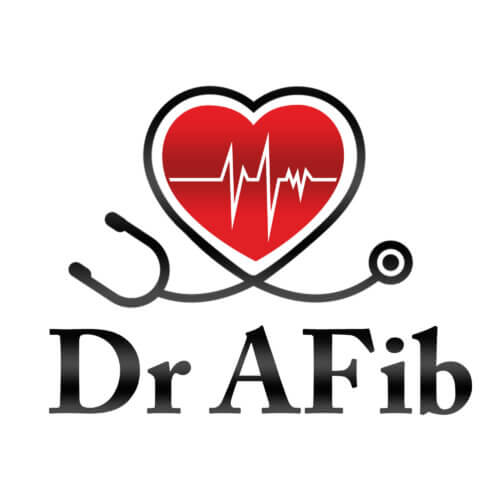

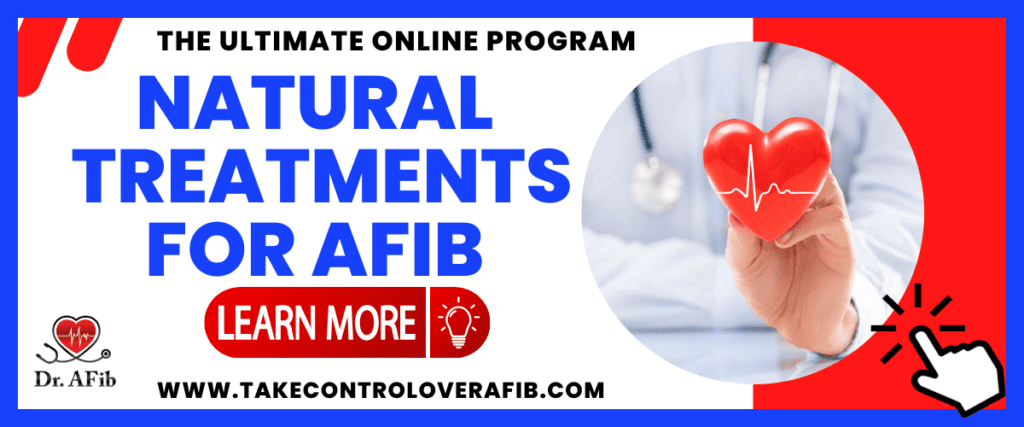














![Apple Watch Series 9 [GPS 41mm] Smartwatch with Storm Blue Aluminum Case with Silver Sport Band M/L. Fitness Tracker, Blood Oxygen & ECG Apps, Always-On Retina Display #1](https://m.media-amazon.com/images/I/311xwtp4mFL._SL100_.jpg)
![Apple Watch Series 9 [GPS 41mm] Smartwatch with Storm Blue Aluminum Case with Silver Sport Band M/L. Fitness Tracker, Blood Oxygen & ECG Apps, Always-On Retina Display #2](https://m.media-amazon.com/images/I/41j+8AaUGsL._SL100_.jpg)
![Apple Watch Series 9 [GPS 41mm] Smartwatch with Storm Blue Aluminum Case with Silver Sport Band M/L. Fitness Tracker, Blood Oxygen & ECG Apps, Always-On Retina Display #3](https://m.media-amazon.com/images/I/41jIyxZitnL._SL100_.jpg)
![Apple Watch Series 9 [GPS 41mm] Smartwatch with Storm Blue Aluminum Case with Silver Sport Band M/L. Fitness Tracker, Blood Oxygen & ECG Apps, Always-On Retina Display #4](https://m.media-amazon.com/images/I/41IpNJERjCL._SL100_.jpg)
![Apple Watch Series 9 [GPS 41mm] Smartwatch with Storm Blue Aluminum Case with Silver Sport Band M/L. Fitness Tracker, Blood Oxygen & ECG Apps, Always-On Retina Display #5](https://m.media-amazon.com/images/I/31o17yhfYpL._SL100_.jpg)
































